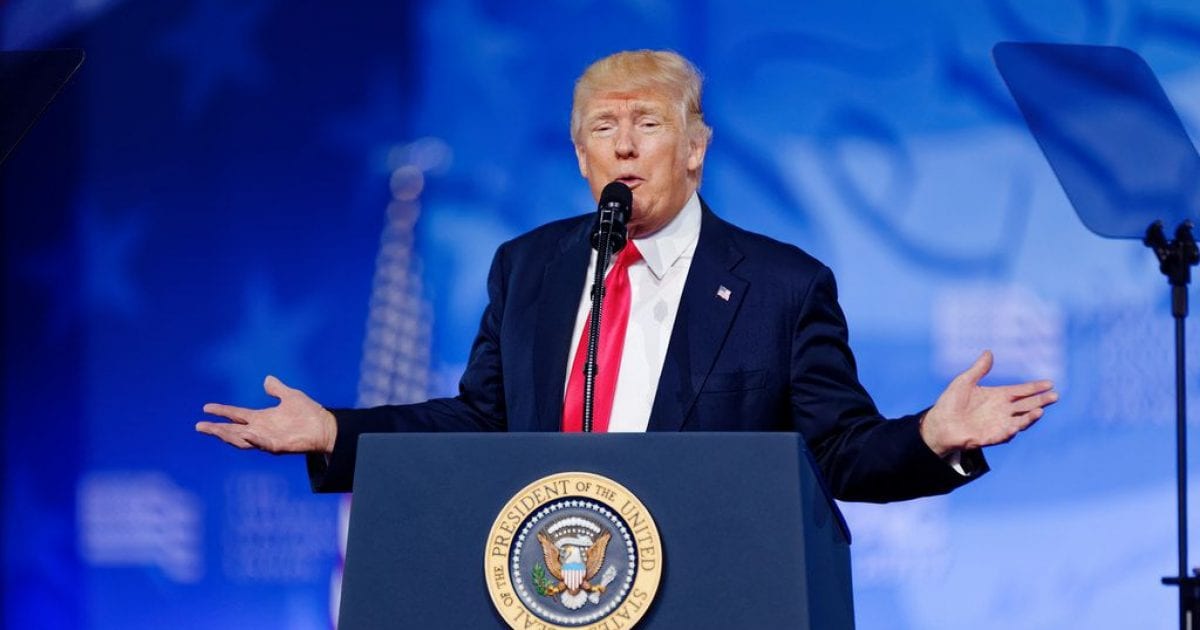Exactly how worried are Democrats about the November 2020 election?
VERY worried, if their latest bill is any indication.
A Democrat-led House committee has passed a bill that would make Washington D.C. the 51st state in the United States of America.
D.C. is arguably has the highest density of Democrats in the country.
It would assuredly add Democrat seats to both the House and Senate.
Currently, the bill has 220 co-sponsors, which gives it the momentum and possibility to pass the majority-Democrat House.
See more here:
Democrats are pushing to vote on the measure before the November 2020 election.
The current plan is to vote before the summer recess.
The Hill has more details on the proposed timeline:
The House will vote on a measure to make Washington, D.C., the 51st state before the summer recess, the first time a statehood bill for the nation’s capital has been voted on since 1993.
House Majority Leader Steny Hoyer (D-Md.) told WUSA-9 in an interview following President Trump's State of the Union address Monday that he plans to bring HR-51 to a vote on the House floor before the chamber breaks for the summer.
“We’re the only capital in the free world that doesn't allow its citizens to have a voting member in the parliament, or in this case the congress,” Hoyer said.
D.C. Del. Eleanor Holmes Norton (D) announced last week a committee markup and vote will be held for the bill next Tuesday. It’s expected to be voted through committee and make it onto the House floor.
Norton introduced the statehood bill last year in January, and it has received record support from co-sponsors, including support from Speaker Nancy Pelosi (D-Calif.).
If the bill is enacted, it would have consequences in political balance for years to come.
Democrat groups, including the Women's March, understand how this could re-shape the political landscape.
See their tweet below:
Despite objections from the Republican minority, the House Oversight Committee is pushing forward.
CBS has more details on the proposed bill:
The bill would create a new state known as Washington, Douglass Commonwealth, in honor of the abolitionist Frederick Douglass who was born in neighboring Maryland. The new state would receive two senators and one House member.
Washington, D.C., is the country's twentieth-largest city. With over 700,000 residents, it has more people than two states, Wyoming and Vermont, and not much fewer than Alaska and North Dakota.
Citizens of D.C. pay taxes and serve in the military. However, they do not have full representation in Congress. Unlike other small states which have two senators and only one congressman, D.C. has no senators and only a delegate to the House of Representatives who cannot vote on final passage of any legislation.
And while D.C. has a mayor and a 13-member city council, Congress has the power to review and block any piece of legislation passed by the city government. The city budget must also be approved by Congress, leading to instances in which members of Congress have blocked the city from subsidizing abortions for low-income women and from legalizing the sale of recreational marijuana.
Stasha Rhodes, the spokesperson for 51 for 51, a campaign advocating for making D.C. a state, said in a statement that it was a "historic day."
The District of Columbia is solidly Democratic.
Over 90 percent of voters supported Hillary Clinton in the 2016 presidential election.
With such a closely divided Senate, some Republicans reportedly fear that the bill is a political move to tilt the balance of the Senate to favor Democrats.
USA Today has an interesting quote from Senate Majority Leader Mitch McConnell:
Passage of the bill into law, though, appears doubtful as Senate Majority Leader Mitch McConnell, R-Ky., has suggested D.C. statehood is "full-bore socialism." He said in June that D.C. statehood would give Democrats an advantage in the Senate and allow them to expand the Supreme Court.
The House Committee on Oversight and Reform markup on a D.C. statehood bill would be the first since 1993, said chairwoman Carolyn Maloney, D-N.Y. In September 2019, the committee held a hearing on D.C. statehood, also the first since 1993.
Washington is home to more than 700,000 residents, making it more populous than Wyoming and Vermont. But its sole member of Congress does not have a vote.
While statehood is popular among most D.C. residents, a Gallup poll found that 64 percent of Americans are opposed.



Join the conversation!
Please share your thoughts about this article below. We value your opinions, and would love to see you add to the discussion!